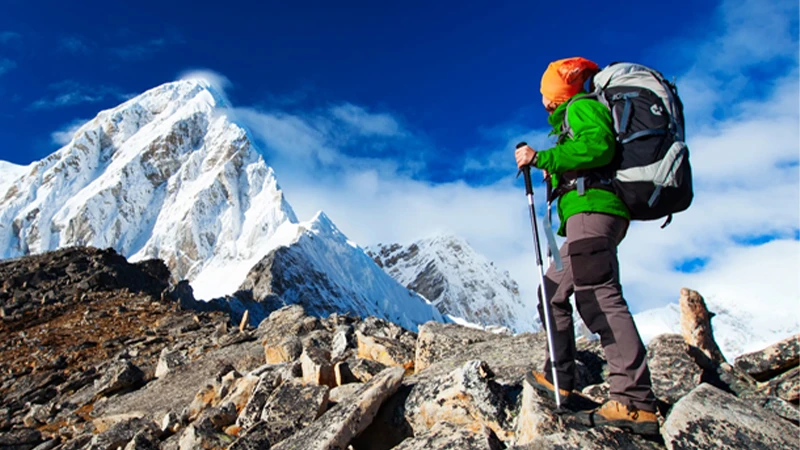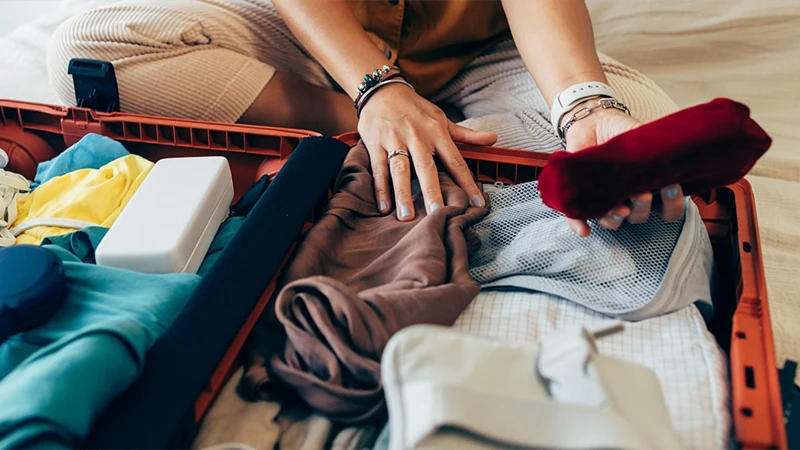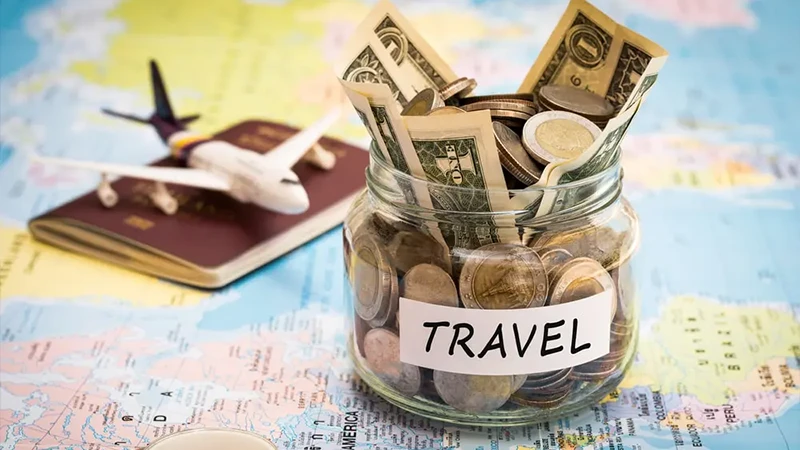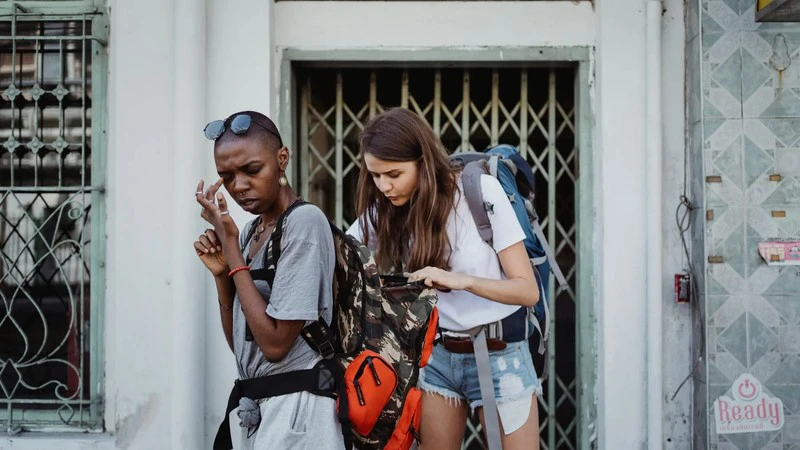Long-distance travel, whether by air, train, car, or bus, can be a thrilling experience, offering the opportunity to explore new destinations and cultures. However, it also comes with its own set of challenges and risks, especially when traveling to unfamiliar places. To ensure your trip is both enjoyable and safe, it’s essential to take a few precautions, plan ahead, and stay alert throughout your journey.
Here are some crucial safety tips for long-distance travel that will help you stay secure, comfortable, and prepared for any situation that may arise.
1. Plan and Research Your Destination
Why It’s Important:
Knowing as much as possible about your destination before you arrive is one of the best ways to stay safe. Researching local customs, transportation options, and potential risks allows you to anticipate issues and avoid dangerous situations.
Key Tips:
- Know Local Safety Concerns: Research if your destination has any specific safety risks (e.g., political instability, high crime areas, or natural hazards). You can check government travel advisories for updated information.
- Learn Basic Local Phrases: Knowing how to say “hello,” “thank you,” and “help” in the local language can make a huge difference if you need assistance.
- Study Local Laws and Customs: Familiarize yourself with the local laws, cultural norms, and etiquette. For example, in some countries, there may be strict rules about alcohol consumption, dress codes, or public behavior.
2. Keep Copies of Important Documents
Why It’s Important:
Losing important documents, such as your passport, tickets, or credit cards, can put a serious damper on your trip and leave you stranded. Keeping copies of these documents can help expedite the process of replacing them if they’re lost or stolen.
Key Tips:
- Make Digital Copies: Take photos or scans of essential documents (passport, visa, tickets, travel insurance, etc.) and store them securely in a cloud service or encrypted digital folder. You can also email copies to yourself or a trusted friend.
- Carry Hard Copies: In addition to digital copies, keep a set of printed copies of your passport, visa, travel insurance, and emergency contacts. Store them separately from the originals, such as in a separate bag or suitcase.
- Emergency Contacts: Have a list of emergency contact numbers, including your country’s embassy or consulate, local emergency services, and the phone numbers of friends or family who can help in case of an emergency.
3. Invest in Travel Insurance
Why It’s Important:
Travel insurance is one of the most important safeguards you can have when traveling long distances. It can protect you from a wide range of potential issues, including medical emergencies, trip cancellations, lost baggage, or stolen belongings.
Key Tips:
- Choose the Right Coverage: Make sure your travel insurance covers medical emergencies, flight cancellations, lost luggage, theft, and trip interruption. If you’re engaging in adventurous activities (e.g., hiking, scuba diving), check if those are covered as well.
- Understand the Terms: Review the fine print to understand what’s covered and what isn’t. Some policies may have exclusions for certain activities or medical conditions.
- Emergency Assistance: Ensure that your policy includes 24/7 emergency assistance, so you have support if anything goes wrong during your travels.
4. Stay Alert in Public Places
Why It’s Important:
When traveling long distances, especially in crowded airports, train stations, or bus terminals, it’s easy to become distracted by the excitement of your journey. However, staying aware of your surroundings is crucial to avoid theft, scams, or other safety risks.
Key Tips:
- Keep an Eye on Your Belongings: Always keep your valuables, such as your wallet, phone, and passport, secure and within reach. Use anti-theft backpacks or money belts to protect against pickpockets.
- Watch Out for Scams: Be cautious when approached by strangers offering “help” with luggage, transportation, or money. If something feels suspicious, trust your instincts and politely decline.
- Stay in Public Areas: Avoid isolated or poorly lit areas, especially at night. Stick to well-populated, well-lit places, and use trusted transportation services.
- Stay Calm in Emergencies: If you’re in a situation where you feel unsafe, stay calm, assess the situation, and seek help from a nearby security officer or local authorities.
5. Use Reliable Transportation Options
Why It’s Important:
When traveling long distances, transportation is one of the most significant aspects of your trip. Choosing reliable and safe transportation options ensures you arrive at your destination safely, without unnecessary stress.
Key Tips:
- Check Transportation Reviews: If you’re using services like taxis, ride-sharing apps (e.g., Uber, Lyft), or local buses, read reviews of drivers or transportation companies to ensure reliability and safety.
- Use Registered Services: Avoid using unlicensed or unofficial transport services, especially in unfamiliar areas, as they may not meet safety standards.
- Know Your Route: Familiarize yourself with the route to your hotel or destination ahead of time. If you’re unsure, ask the driver or conductor for confirmation.
- Secure Your Valuables: Never leave your valuables unattended in a vehicle, and avoid drawing attention to expensive items like jewelry or electronics.
6. Stay Healthy During Your Journey
Why It’s Important:
Long-distance travel can be physically demanding, especially if you’re crossing multiple time zones, flying for extended periods, or dealing with the stress of traveling in a foreign environment. Staying healthy ensures you can enjoy your trip and avoid any travel-related illnesses.
Key Tips:
- Hydrate and Eat Well: Drink plenty of water and try to eat balanced meals. Long flights, train rides, or car trips can dehydrate you, so it’s important to stay hydrated to avoid fatigue or illness.
- Get Up and Move: On long flights or bus rides, make an effort to stand up, stretch, and walk around every couple of hours to prevent deep vein thrombosis (DVT) or other circulation issues.
- Pack a Travel Health Kit: Bring basic medications (e.g., pain relievers, allergy meds, anti-nausea pills) and any prescription medications you may need. You may also want to pack hand sanitizer, disinfecting wipes, and a face mask, especially if you’re traveling during cold and flu season.
- Vaccinations and Health Precautions: If you’re traveling to a region with health risks (e.g., tropical diseases), consult your doctor before your trip and make sure you’re up to date on necessary vaccinations.
7. Secure Your Accommodation
Why It’s Important:
Your hotel or accommodation should provide a safe environment where you can rest and store your belongings securely. It’s essential to choose accommodations that offer security measures and are located in safe neighborhoods.
Key Tips:
- Choose a Reputable Hotel or Hostel: Read reviews and choose accommodations that have good ratings for safety, cleanliness, and security. You can often find hotel security features such as 24-hour front desk service, in-room safes, and keycard access to rooms.
- Use Hotel Safe: If your room has a safe, use it to store valuables like your passport, extra cash, and electronics. If no safe is available, ask the hotel front desk about safe storage options.
- Check the Surroundings: Before booking, research the neighborhood to ensure it’s safe, especially if you’re arriving late at night. Avoid hotels in areas known for high crime rates or that are too far from public transportation.
- Lock Doors and Windows: Always lock doors and windows when you leave your room and when you’re inside. If you’re staying in shared accommodations like hostels, keep your belongings secure and consider using a padlock for lockers.
8. Know What to Do in an Emergency
Why It’s Important:
Emergencies can happen anywhere, whether you’re in a foreign country or close to home. Knowing how to react quickly and having emergency contacts ready can make all the difference.
Key Tips:
- Learn Local Emergency Numbers: In case of an emergency, know the local emergency numbers for police, fire, and medical services. These may vary from country to country.
- Have a Plan for Lost Items or Documents: If your passport, credit cards, or phone are lost or stolen, know the procedure to report it. In most countries, you can contact the local police and your embassy for assistance.
- Know Where the Nearest Hospital Is: If you’re traveling in a remote area, identify the nearest hospital or medical facility before you leave, in case you need medical attention.
- Stay in Touch: Keep a family member or friend informed about your whereabouts, especially if you’re traveling to a less-populated area or going off the grid.
Conclusion: Enjoy Your Long-Distance Journey Safely
Long-distance travel can be an enriching and exciting experience, but safety should always be a top priority. By taking simple precautions—planning ahead, staying alert, and securing your belongings—you can ensure that your trip goes smoothly and is free from unnecessary stress. Whether you’re traveling for business or leisure, with the right preparation, you’ll be able to enjoy your adventure while staying safe and healthy. Safe travels!








